What is a Panic Attack?
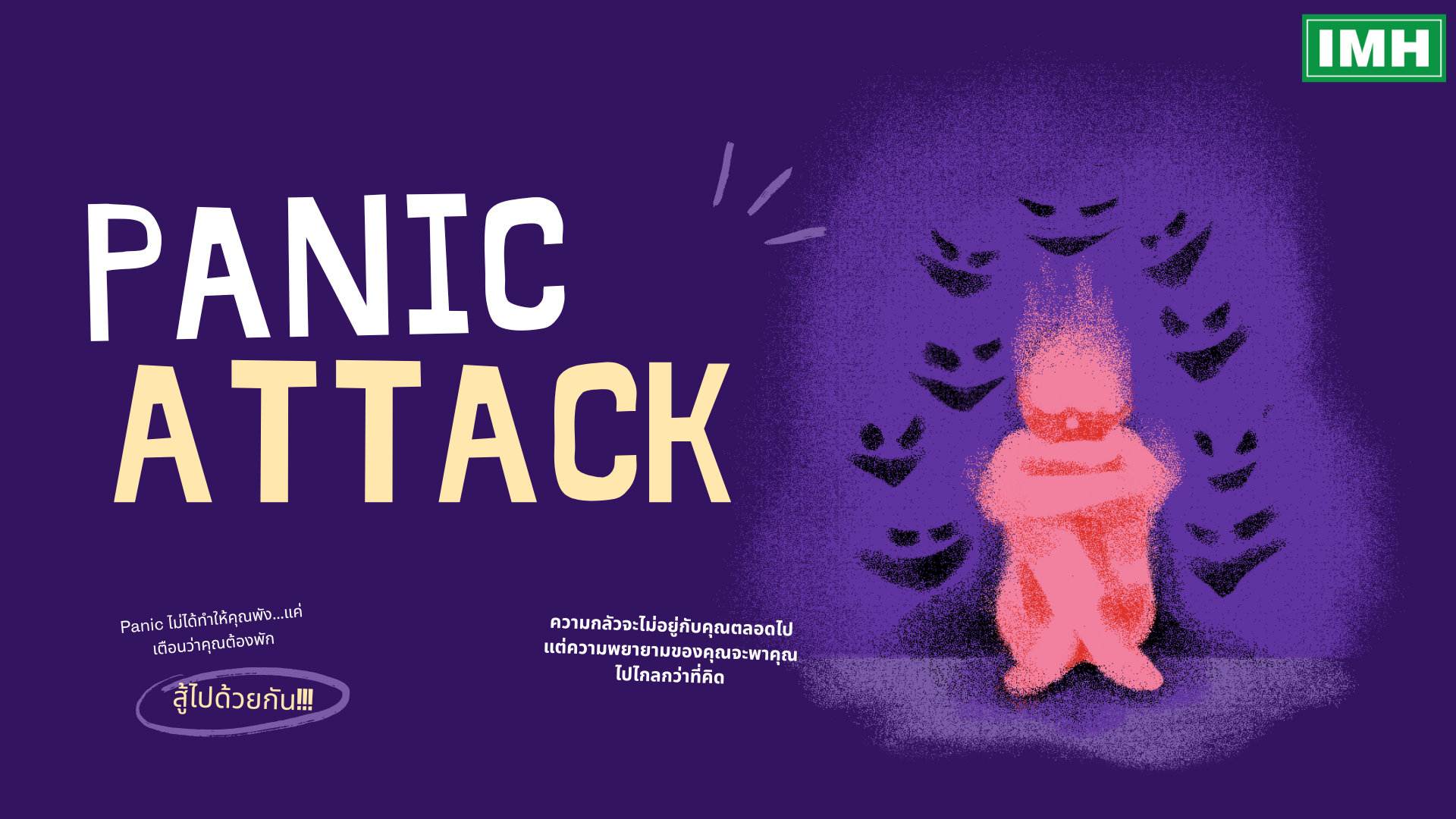
What is a Panic Attack?
A Panic Attack, commonly referred to in Thai as โรคแพนิก, is a sudden, intense response of the body and mind to stress or anxiety. It can trigger overwhelming fear and physical reactions, even when there is no real danger present.
The symptoms usually occur abruptly and last for about 10 to 30 minutes before gradually subsiding.
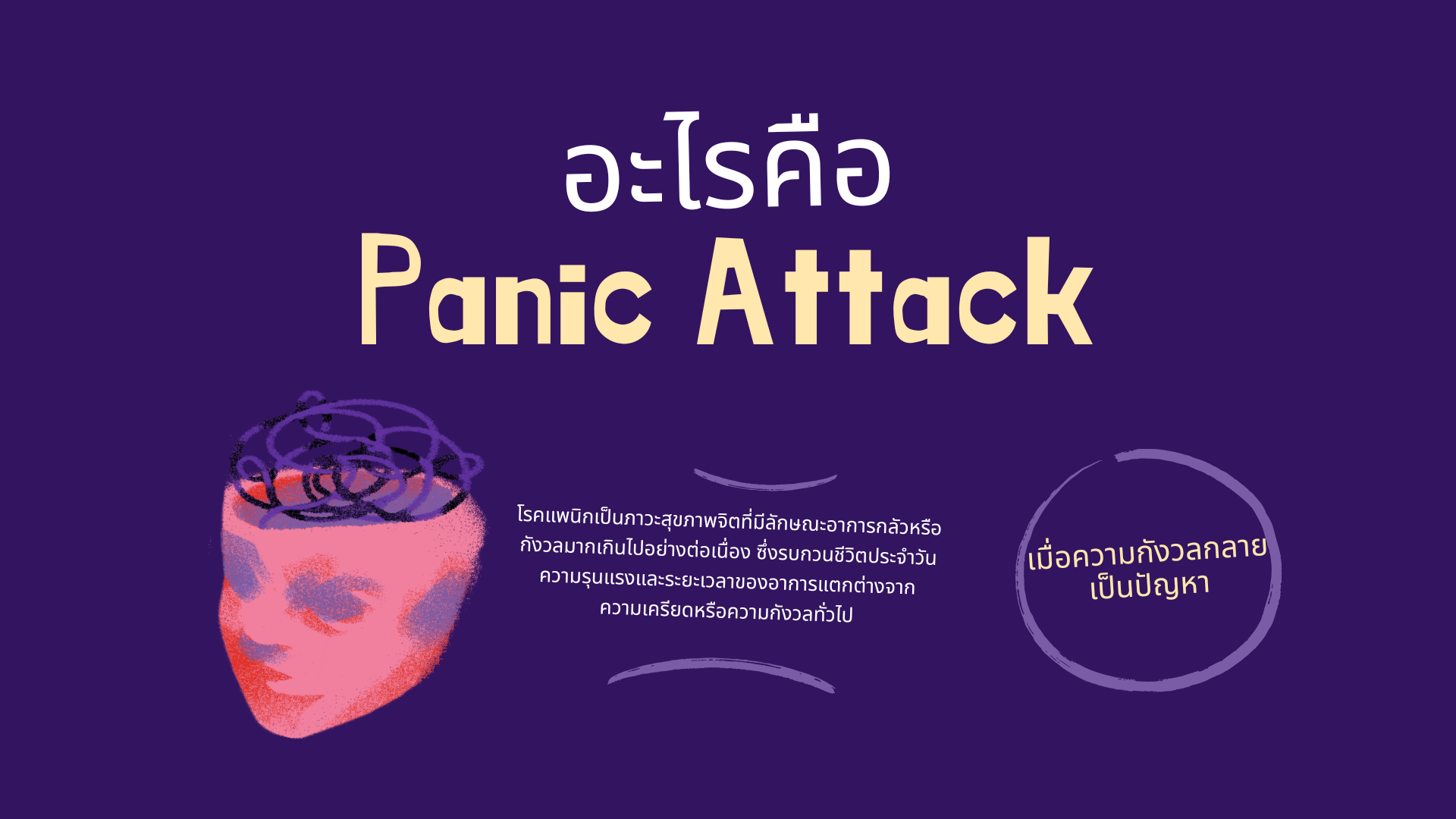
Symptoms of a Panic Attack
People experiencing a panic attack often feel as though they are facing a life-threatening situation. Common symptoms include:
- Rapid heartbeat or palpitations
- Sweating and cold hands
- Shortness of breath or a feeling of suffocation
- Chest pain or tightness
- Dizziness, nausea, or feeling faint
- Shaking or alternating chills and hot flashes
- Fear of losing control
Many individuals mistake these symptoms for a heart attack and rush to the hospital, as the sensations can feel very similar.
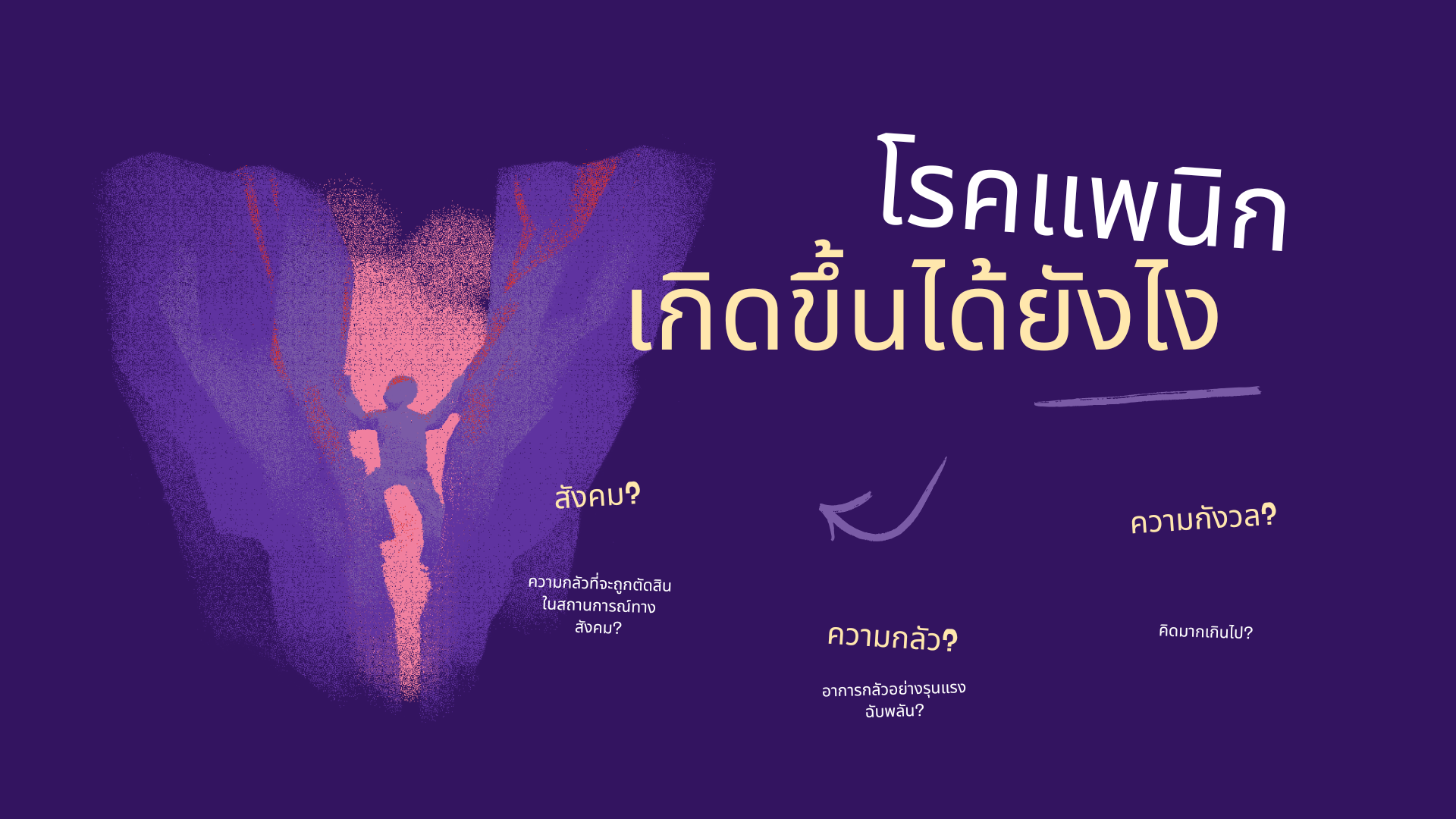
Causes of Panic Attacks
The exact cause of panic attacks is still unknown, but several contributing factors have been identified:- Chronic stress or exposure to traumatic events
- Genetics (having a family history of panic disorder)
- Chemical imbalances in the brain, such as serotonin or norepinephrine
- Personality traits, such as being overly anxious or prone to overthinking
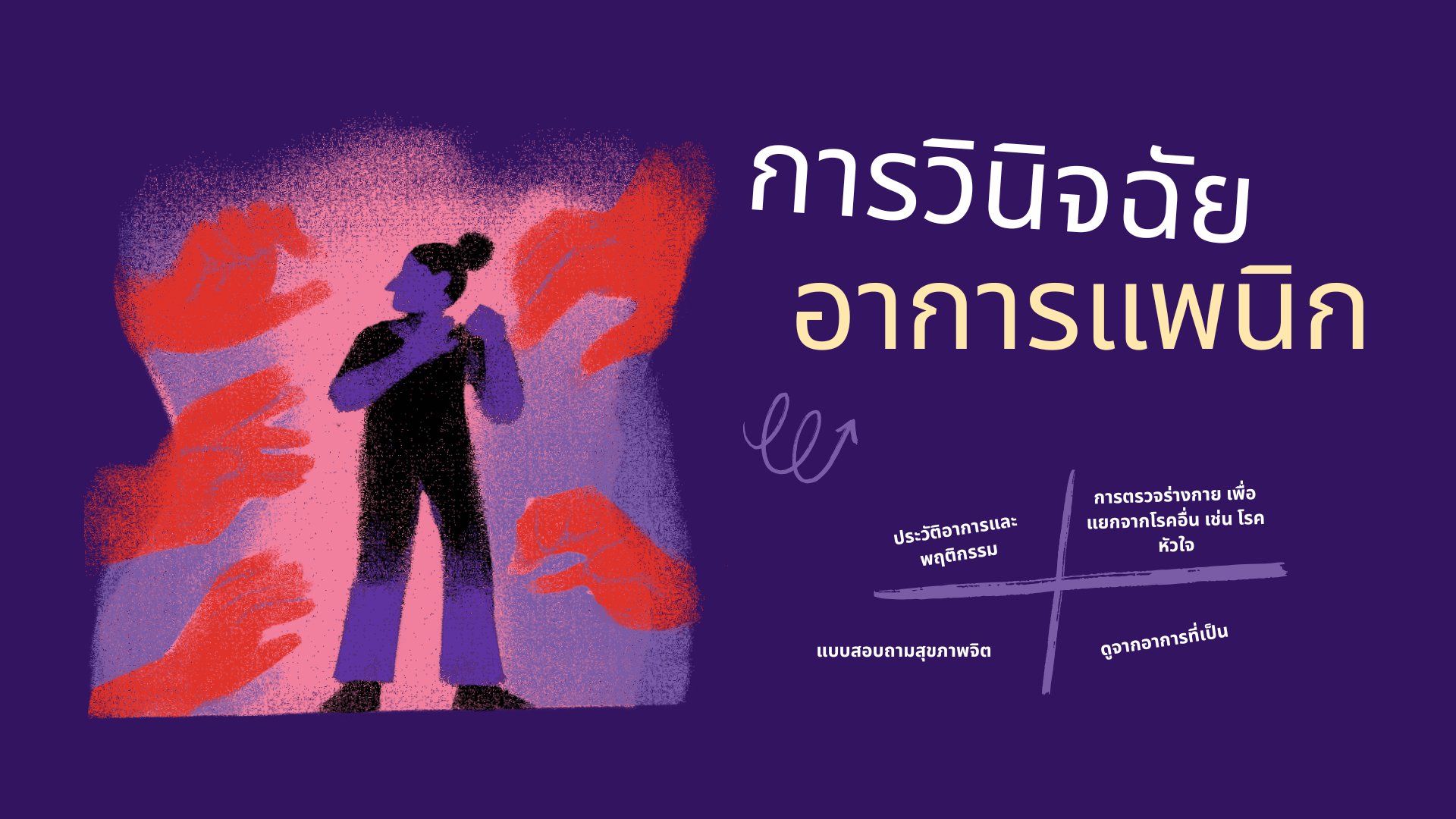
Diagnosis
Doctors diagnose panic attacks based on:
- Medical history and behavioral patterns
- Physical examination to rule out other conditions such as heart disease
- Mental health questionnaires
If panic attacks occur frequently or significantly interfere with daily life, the condition may be diagnosed as Panic Disorder (chronic panic attacks).
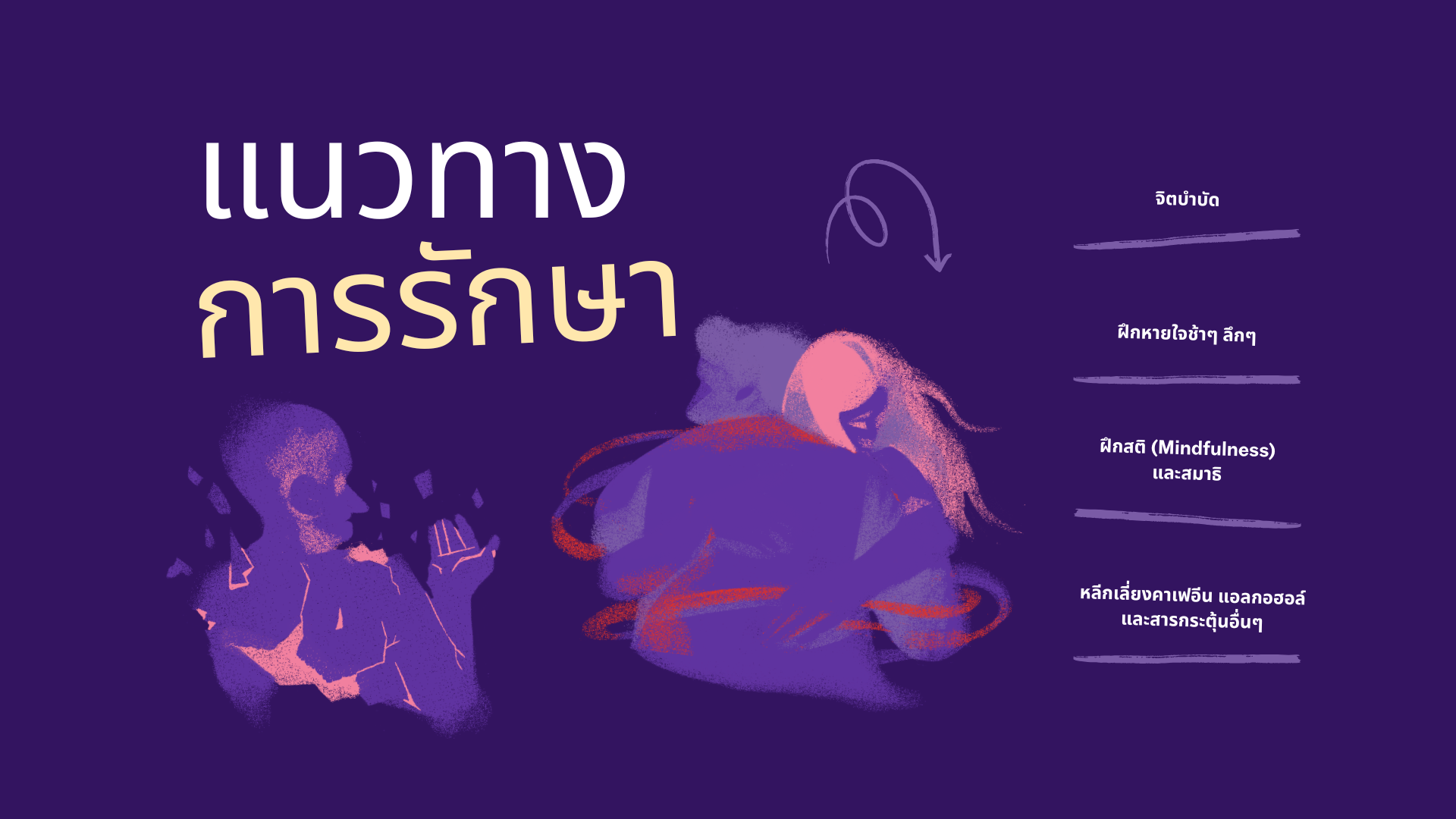
Treatment Options
- Psychotherapy (Cognitive Behavioral Therapy - CBT) Helps individuals understand their symptoms and change thought patterns that trigger panic attacks.
- Medication Antidepressants (such as SSRIs) or anti-anxiety medications may be prescribed under medical supervision.
- Self-Care Strategies Practice slow, deep breathing Engage in mindfulness and meditation Ensure adequate rest and sleep Avoid caffeine, alcohol, and other stimulants Exercise regularly
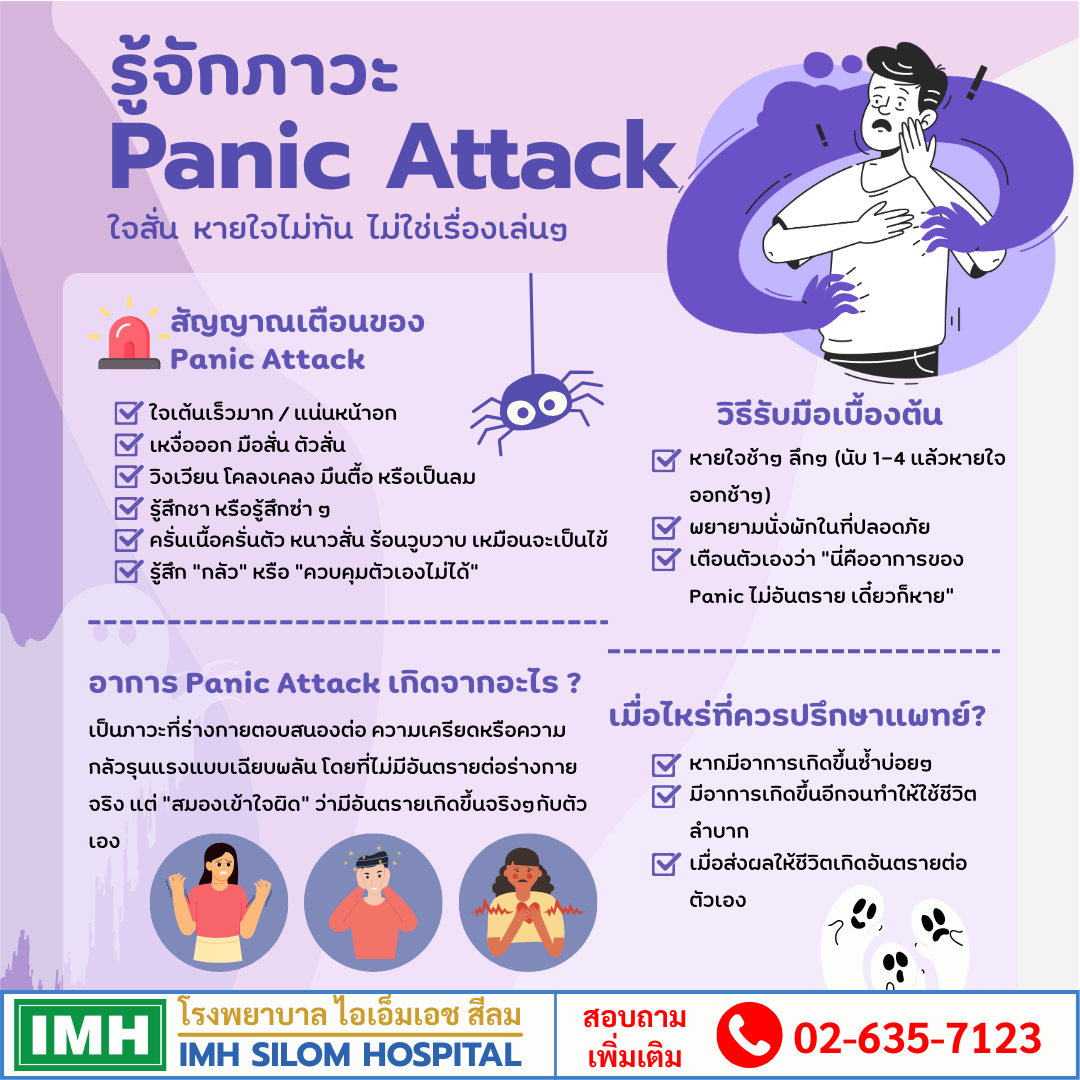
Panic Disorder Is Not a Sign of Weakness
Panic disorder can happen to anyone and its nothing to be ashamed of.
If you or someone close to you is experiencing it, know that with proper diagnosis and care, recovery is possible.
You can regain control and return to living life with confidence.

